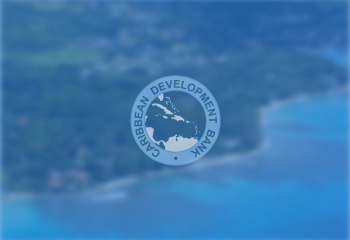Tackling climate change in the Caribbean, through innovation and entrepreneurship
The Caribbean region is especially vulnerable to the effects of climate change and needs to find solutions to address its climate, energy and resource challenges. The Caribbean Climate Innovation Centre (CCIC) is helping by assisting Caribbean countries to create clean technologies and businesses, so that they can better adapt to and plan for the effects of climate change.
Since its inception in 2014, CCIC has been encouraging innovation, entrepreneurship, and supporting economic development through job creation. One of its initiatives is regionally held boot camps, which bring together young entrepreneurs to find business solutions to climate change.
“In 2016 we were in Jamaica, Trinidad, Saint Lucia, Antigua, Dominica, and Belize. The first one was held in Jamaica and it was a huge success, we had over 75 participants. To date, we have impacted on over 300 entrepreneurs, and we have seven winners which automatically qualify for our accelerator programmes," said Carlington Burrell, Project Manager, CCIC.
The winners from each boot camp are funnelled into the CCIC six-month accelerator programme, where they receive business support and mentorship to help their ideas to grow into viable businesses. The aim is to create start-ups that can catapult the Region to the top of the global green economy.
CCIC was developed in collaboration with several regional stakeholders. It is a component of the World Bank' global partnership development programme, InfoDev, which is funded by the Government of Canada. In addition, several regional stakeholders, including the Caribbean Development Bank (CDB), have supported the CCIC through the provision of technical expertise and strategic guidance.
“CDB is pleased to partner with CCIC to establish regional institutional capacity that will support Caribbean entrepreneurs and new ventures involved in developing locally appropriate solutions to climate change mitigation and adaptation. Given the Region' vulnerability to climate change and natural hazards, the importance of the programmes of the CCIC are critical to CDB' Borrowing Member Countries," said Lisa Harding, Operations Officer, CDB and current Chairperson of the CCIC Management Committee.
In 2017, CCIC intends to host another seven boot camps, for countries in the Eastern Caribbean. Budding entrepreneurs will be supported by hubs which have been established in 12 Caribbean nations: Antigua and Barbuda, The Bahamas, Barbados, Belize, Dominica, Grenada, Guyana, Montserrat, St. Kitts and Nevis, Saint Lucia, St. Vincent and the Grenadines, and Suriname.
CCIC is jointly managed by the Scientific Research Council (SRC), based in Jamaica, and the Caribbean Industrial Research Institute (CARIRI), located in Trinidad and Tobago. Jamaica, and Trinidad and Tobago function as the two primary country hubs, and provide support for the other regional locations. The programme focuses on five priority areas: solar energy, water management, sustainable agribusiness, resource use and efficiency, and energy efficiency, and emphasizes the need for a regional approach in solving challenges in these areas.
“The Caribbean may not be one of the major contributors to greenhouse gases, but because of our economies, because we depend on agriculture so much, because we depend on Tourism, we are extremely vulnerable to the effects of it. So it is necessary for us to come together as a group. We cannot address this as individual countries," said Meghnath Gosein, who represents CARIRI on the CCIC Management Committee.
“The idea is to share best practices and also to provide a network in which we can deal with climate change and climate mitigation. In the Caribbean, we feel that we have a distinct advantage because we have an opportunity to create jobs within the space, given the focus on climate mitigation by the donor community," added Karlene Francis, Program Officer, World Bank.
The Caribbean component of the Climate Innovation Centre (CIC) is one of eight CICs established across the world. The others are located in Ethiopia, Ghana, India, Kenya, Morocco, South Africa and Vietnam.

